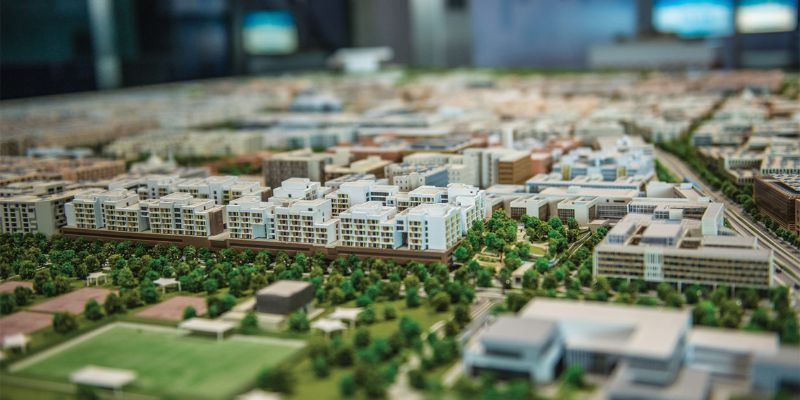Ph.D. in City and Regional Planning: Introduction, Admission, Registration, Eligibility, Duration, Fees, Syllabus 2024

Introduction:
A Ph.D. in City and Regional Planning is designed for individuals looking to lead and innovate in the planning of urban and regional environments. This advanced degree combines scholarly research with practical applications to address complex issues such as urban sprawl, sustainable development, and infrastructure management. Graduates are equipped to influence policy, conduct impactful research, and drive the sustainable development of cities and regions around the world.
Admission Process:
Securing admission into a Ph.D. program in City and Regional Planning typically involves several steps:
- Application Submission: Candidates must submit an application form accompanied by a statement of purpose, resume/CV, and official transcripts.
- Educational Background: A master’s degree in urban planning, architecture, public policy, or a related field is usually required.
- Letters of Recommendation: Two to three letters from academic or professional sources that can attest to the applicant's suitability for doctoral research.
- Research Proposal: Submission of a detailed research proposal that outlines the applicant's intended area of study and its potential impact.
- Interviews: Interviews with faculty members to discuss the candidate's research interests and alignment with the department’s expertise.
- Standardized Tests: GRE scores may be required, depending on the program's specific requirements.
Eligibility:
Applicants typically need to meet the following criteria:
- Proven Academic Ability: Strong academic record, particularly in relevant subjects.
- Relevant Experience: Professional or research experience in urban planning or a closely related field.
- Research Skills: Demonstrable skills in research methodologies applicable to urban studies.
- Problem-Solving Skills: Ability to develop innovative solutions to complex planning problems.
- Communication Skills: Excellent written and oral communication skills.
- Leadership Potential: Demonstrated potential for leadership in academic or professional settings.
Completion Time:
Completing a Ph.D. in City and Regional Planning typically takes about 4-6 years, depending on the student’s research focus, coursework requirements, and dissertation length.
Career Opportunities:
Ph.D. graduates have a wide range of career opportunities:
- Academia: Teaching and researching at universities.
- Government Planning Departments: Leading urban and regional planning initiatives.
- International Organizations: Working on global urban development projects with entities like the UN or World Bank.
- Private Sector: Consulting roles in urban planning firms or real estate development companies.
- Non-Profits and NGOs: Leading projects focused on sustainable development and community planning.
- Research Institutions: Conducting and managing urban studies research.
Syllabus:
The curriculum may cover:
- Advanced Urban Theory
- Quantitative and Qualitative Research Methods
- Sustainable Urban Design
- Transportation Planning
- Housing and Land Use Policy
- Environmental Impact Assessment
Internship Opportunities:
Practical experience is crucial:
- Government Internships: Working with city or regional planning departments.
- NGOs and Non-Profits: Gaining experience in community-based planning projects.
- Private Sector: Internships in planning or real estate development firms.
- International Agencies: Participating in global urban development initiatives.
- Research Projects: Collaborating on university-led or government-funded research.
Scholarships and Grants:
Funding options include:
- University Fellowships: Often cover tuition and provide a living stipend.
- Government Grants: For research that addresses public policy or urban development challenges.
- Private Foundations: Offer grants for research in specific areas of urban and regional planning.
- Corporate Sponsorships: From planning or real estate firms interested in specific research areas.
- International Scholarships: For students from abroad or projects involving international collaboration.
FAQs:
What is the focus of a Ph.D. in City and Regional Planning?
To develop advanced knowledge and solutions for planning sustainable, efficient, and livable urban and regional environments.
What skills are essential for success in this Ph.D. program?
Analytical skills, research proficiency, innovative thinking in urban design and planning, and strong communication skills.
How does this Ph.D. program integrate with professional practice?
Through internships, collaborative projects with government and industry, and case studies that bridge theory and practice.
What are the key outcomes of this Ph.D. for graduates?
Expertise in planning, policy-making capabilities, and leadership in managing urban growth and development.
How can I finance my Ph.D. studies in City and Regional Planning?
Through scholarships, fellowships, and grants targeted towards sustainable development and urban planning.
